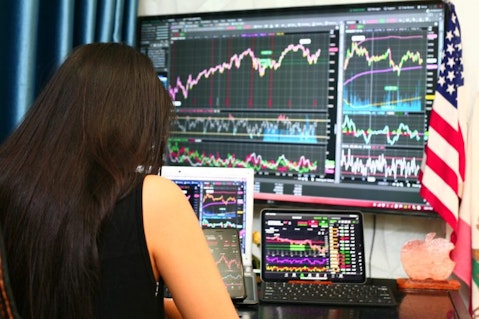Robinhood was in hot waters when critics and financial regulators voiced concerns against the gamification of its trading app.
The critics argued that gamification and easier access to trading apps could potentially lead users to gambling-like addiction and financial losses.
Robinhood had to step away from the gamification path under immense public and regulatory pressure after facing lawsuits, but the phenomenon of stock trading addiction hasn’t abated. “The allure of quick profits and an easy-to-use platform can be tempting; however, understanding the risks is essential,” said forex expert Edward Kendy, who has reviewed more than 100 brokers. This highlights the ongoing concern about trading addiction, especially among younger investors.

Is Online Retail Trading Addiction Real?
Retail trading comes with more fears than pleasures, so it’s hard to argue that it’s a form of addiction.
Some trading strategies like day trading, algorithm trading, forex trading and the use of robo-advisors have led users to trading addiction though.
Thus, we can say, that the behavior linked to trading is addictive much like we say for gambling in casinos.
The trading addiction isn’t limited to stocks only. Traders using all types of instruments including forex, stocks, commodities, and cryptocurrencies have fallen into the trap.
Trading addiction, the rise of social trading, and newly emerged “meme stocks” are all part of the same puzzle.
Such addictive behaviors from traders compelled veteran investors and billionaires like Charlie Munger to say that Stock Market “gambling” is as addictive as “heroine”.
The Notorious “Illusion of Success” Trap
Like gambling, stock trading addiction is linked to psychological factors more than financial ones.
Day trading is prone to addiction where an investor must perform several hundred or thousands of transactions in a single trading day.
First, when an investor wins, he or she considers the success permanent and chases the dopamine of success further.
On the other hand, a loss of money results in chasing the recovery of lost money and additional gains.
Either way, an uncontrolled or ill-planned trading strategy can lead an investor to addictive behaviors.
Why More Youngsters Become Addicted to Trading Online?
In terms of regular trading, the younger generation of millennials is hesitant to invest in the long run.
Data from Gallup and Zippia shows that the older age group that holds more stocks than the younger ones.
However, when it comes to gambling and stock trading addiction, the younger ones are more prone to the dangers than the older ones.
The Rise of Mobile Trading Apps
The most prominent factor leading youngsters to online trading is easy access to stock trading through mobile apps.
It’s hard to think of a trading platform these days without an IOS or Android mobile app. It means users can start stock trading from their palms in minutes.
Low Entry Barriers
Although regulatory frameworks differ around the world, it’s generally easier to enter stock trading platforms now than a decade ago.
With online and mobile stock trading on the rise, trading platforms are also making it easier for users to register and enter the stock markets.
Low-Cost Trading
More competition among online brokers and the rise of digital trading apps like Robinhood, Etoro, Acorns, Webull, etc. means lower trading costs for users.
Online brokers and mobile trading platforms are competing on tight spreads and many of the leading market players are offering trading with zero commissions.
It lures more young investors into online trading.
The Need for Alternative Income
A recent phenomenon of rising retail online trading popularity around the world came from the need for alternative income sources during the recent pandemic years from 2020 to 2023.
Traditionally, it was the older age group who needed a stable income source and would turn to dividend stocks.
Recently, more unemployed youngsters took the trading route at an unprecedented rate.

How to Cure the Trading Addiction?
Apart from the factors listed above, some medical and psychological ingredients push youngsters into stock trading addiction.
However, with the right guidance and help, you can always find a rehabilitation path.
– The most important part of the recovery phase is the realization of trading addiction habits.
– Then, you must seek professional help from a psychologist or any other medical specialist.
– Talk to your loved ones and seek support from them to stabilize your condition emotionally and financially.
– Talk to a financial mentor to discuss your financial woes. Do not leave it to speculations and random bets.
– Learn and educate yourself on trading fundamentals as well as strategies to avoid financial losses in the future.
– Finally, let someone monitor your routine and develop a habit of professional stock trading through learned knowledge and practice.




